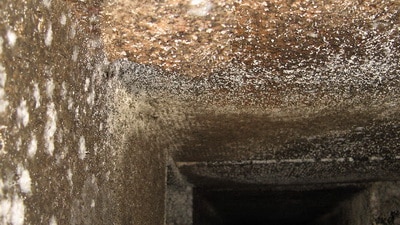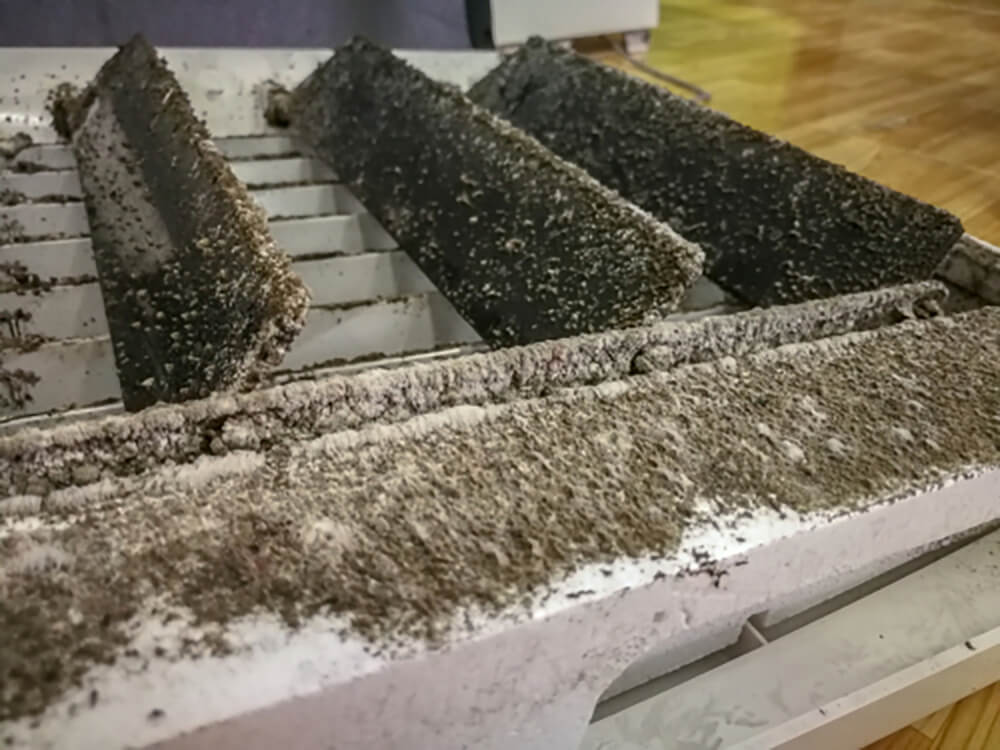The symptoms may vary from person to person and can also depend on the length of exposure and the amount of spores inhaled.
What causes mildew on air conditioner vents.
When the cool air from the vents meets the warm air in the room the temperature difference can cause moisture in the air to condense on surfaces in and around the vents.
Excessive condensation can also create conditions favorable to mold or mildew forming in areas surrounding the duct itself.
As cool air flows through the vents on hot days the moisture in the air can condense inside the air vent.
That smell is mildew and it indicates that there has been.
Short cycling occurs when an oversized air conditioner blasts your home with cold air then shuts down quickly.
This happens with your air conditioner because when you have cold air and cold vents but hot air on the outside condensation will form.
Mold in air ducts most commonly occurs when there is moisture inside the ductwork.
If your air conditioner s filter is dirty and clogged this may result in your ac smelling musty.
And the sooner the better.
Mildew is a type of fungus that grows in damp and humid areas.
Air conditioning vents can transport mildew to any room in your home.
Condensation forms in the coils and ducts as cool air circulates through the system creating a habitat for moisture loving mold.
If your air conditioner is oversized it means your ac won t run long enough to remove moisture from your home s air.
Either way it s supposed to make you comfortable and that s not possible if there s an unpleasant musty smell coming out of your vents.
If that moisture builds up and never gets a chance to dry out it can lead to mold growth.
You can see the same principle at work when you drink an icy beverage and water beads up on the outside of the glass.
Persistent ductwork sweating may eventually lead to water damage.
Air conditioner vents can be breeding grounds for black mold.
If you live in a wet climate such as a southern state or tropical country it is likely that you ve had to clean mildew off your bathroom walls basement floorboards or even from behind your wallpaper.
Luckily this issue can be treated and corrected.
Occasional condensation on a c ducts is not a problem but keeping an eye on the situation is recommended.
Condensation can then drip down and cause moisture on ceilings and walls.
When that moisture meets dust in the evaporator coil or ducts mold mildew can form.










